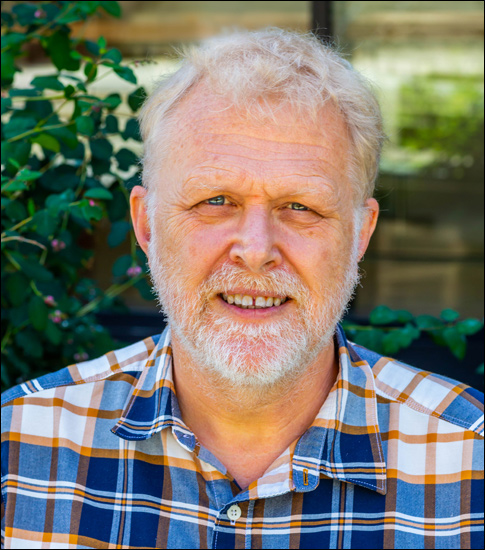ACM Eugene L. Lawler Award for Humanitarian Contributions within Computer Science and Informatics
USA - 2020
citation
For contributions bridging the fields of computer science, education, and global health
Professor Richard Anderson is a pioneer and leader in research, education, and dissemination of information and computing technology for humanitarian causes. He is one of the founders of the emerging field of Information & Communications Technologies for Development (ICTD). ICTD seeks to develop and apply computing and information technologies to benefit low-income populations worldwide, particularly in developing countries. This is an inherently interdisciplinary endeavor, grounded in computing and information science, and engaging with diverse fields such as anthropology, economics, public health, and others. Anderson, his students, and collaborators have developed a range of innovative applications in health, education, the Internet, and financial services, benefiting underserved communities across the globe.
Anderson has led various projects using technological innovations to drive community-led video instruction and achieve success in education, agriculture, and health practice. These are multi-year projects with hundreds of thousands of views, touching many lives in the various communities. For example, Projecting Health, started in 2010, uses low-cost technologies to empower community health workers in rural India. It employs handheld projectors to show locally-produced videos to groups of women, spurring follow-up conversations on maternal and child health. Projecting Health has led to over 15,000 screenings across 180 villages, reaching an estimated 190,000 residents. Anderson orchestrated the scale-up in partnership with PATH, a global health nonprofit organization dedicated to improving the health and livelihoods of families and communities. The project is also backed by rigorous scholarship presented in multiple publications.
The Open Data Kit (ODK) research project is another exemplary of an open-source infrastructure project. ODK has produced tools for mobile data collection and management which have widespread global uptake in the public and non-profit sectors. Anderson provided leadership to the project as it transitioned from a university led project to a free standing organization, and continues to conduct research on expanding ODK-X, a platform for building data management applications. ODK-X is being used by a variety of organizations including the International Red Cross for humanitarian responses and by organizations controlling vector borne diseases. One of Anderson's current projects is developing an immunization information system on top of ODK-X to support national vaccine logistics. This work is critical in helping countries properly plan for introduction of new vaccines.
Other impactful projects with successful partnerships included a human milk bank project in South Africa, a mobile health communication platform for maternal and child health in Kenya, and a vaccine cold-chain project in Uganda and Pakistan. Anderson's leadership has been crucial for initiating, supporting, and sustaining these initiatives. He has nurtured strong ties with global organizations, NGOs, and community-based organizations that drive most of the work on the ground. Failures in ICTD projects are relatively common, so it is no small feat that each of these projects ran for many years and engaged vast populations. They also spearheaded a shift from top-down interventions to community-driven movements. Anderson's perseverance to go beyond purely academic impact and realize concrete benefits for underserved communities is unsurpassed.
In addition to research excellence and impactful projects for humanitarian causes, Anderson has played a core leadership role in nurturing the ICTD community and, more recently, in bringing together several communities under the umbrella of ACM COMPASS (Computing and Sustainable Societies), organizing and championing conferences, workshops, and tutorials, many of them in developing countries (e.g., in Pakistan, Ghana, and Ecuador). Anderson has fostered a growing community of researchers and practitioners engaged in using computing and information technology for humanitarian causes, including several of his Ph.D. students pursuing similar career paths using computing and information science for humanitarian causes.

